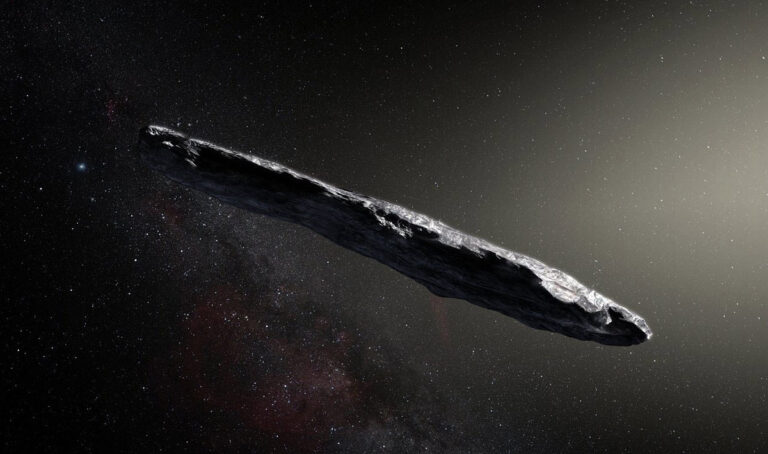Scientists launch project to look for extraterrestrial visitors in our Solar System

Some of you might remember the oddly shaped object that came whizzing past the Sun and Earth in 2017 on a trajectory from outside our Solar System. Most scientists thought the cigar-shaped visitor named ‘Oumuamua, Hawaiian for ‘scout’, was a comet or asteroid from a nearby star or some other cosmic debris. But theoretical astrophysicist Avi Loeb of Harvard University argued that ‘Oumuamua was an alien creation—a light sail, antenna, or even a spaceship. On Tuesday 26 July 2021, he announced a plan to look for more such objects: a philanthropy-backed effort called The Galileo Project.
With the help of existing and new telescopes, the project will systematically look for mysterious artefacts that could be satellites hiding in Earth orbit, interstellar objects—whether natural or manufactured—and even unexplained craft in Earth’s atmosphere. “It doesn’t really matter if it’s a natural artifact or a relic. If we look, we will find something new,” Loeb said.
Artifacts that have potentially been left behind by Extraterrestrial Technological Civilisations (ETCs) could help provide clues about advanced civilisations based on the technology that they have developed, otherwise known as technosignatures. “The goal of The Galileo Project is to bring the search for extraterrestrial technological signatures from accidental or anecdotal observations and legends to the mainstream of transparent, validated, and systematic scientific research,” explained the researchers in a previous statement published 26 July.
But how did The Galileo Project come about, you ask? After Loeb published a book, Extraterrestrial: The First Sign of Intelligent Life Beyond Earth, which made the case that ‘Oumuamua was some sort of alien technology, he told Science Magazine that several wealthy individuals got in touch—unsolicited—to offer funding for such research.
Four of them ended up donating $1.75 million, enough for the theoretical astrophysicist to move forward with his plans. He assembled a research team involving several well-known astronomers and researchers from other fields, although he also admitted that not everyone he approached was receptive. “The science community should be open minded. That’s how we make progress,” Loeb said.
Unlike what happened when ‘Oumuamua first showed its head, giving researchers only two months before it passed out of range of telescopes, detecting incoming objects early will give them more time to study them. Loeb also hopes to design—in collaboration with space agencies or companies—a launch-ready space mission to study an incomer at close quarters.
Some researchers involved in the search for extraterrestrial intelligence (SETI) welcome such studies. “Everyone would be thrilled to get a close-up look” at something like ‘Oumuamua, said astronomer Jason Wright, director of the Penn State Extraterrestrial Intelligence Center.
Others wonder what The Galileo Project will add to ongoing searches for interstellar objects. Alan Fitzsimmons of Queen’s University Belfast, co-leader of the ‘Oumuamua investigation team organised by the International Space Science Institute, noted that existing alert networks already scour telescope data on an hourly basis in search of incoming interstellar objects. He added that the European Space Agency (ESA) is working on a Comet Interceptor mission to launch in 2028 that will sit in orbit waiting for a suitable target, be it a comet or an interstellar object, before rushing out to meet it. “The community can’t wait for the discoveries of the Vera Rubin Observatory,” he says.
Following the recent release of reports on Unidentified Aerial Phenomena (UAP)—including the declassified Pentagon report on UFO sightings published in June this year—the scientific community needs “the determination to systematically, scientifically and transparently look for potential evidence of extraterrestrial technological equipment,” Loeb added.
The Galileo Project will not speculate on previous UAP, alleged sightings, or informal reports, however. Instead, it will analyse data gathered as part of the venture, based on an existing understanding of physics. The international team working on the project includes the Harvard-Smithsonian Center for Astrophysics in Cambridge, Massachusetts, and Frank Laukien, CEO of the scientific equipment manufacturer Bruker Corporation.
As reported in Dazed, summing up the importance of The Galileo Project, Loeb said: “The impact of any discovery of extraterrestrial technology on science, our technology, and on our entire world view, would be enormous.”





